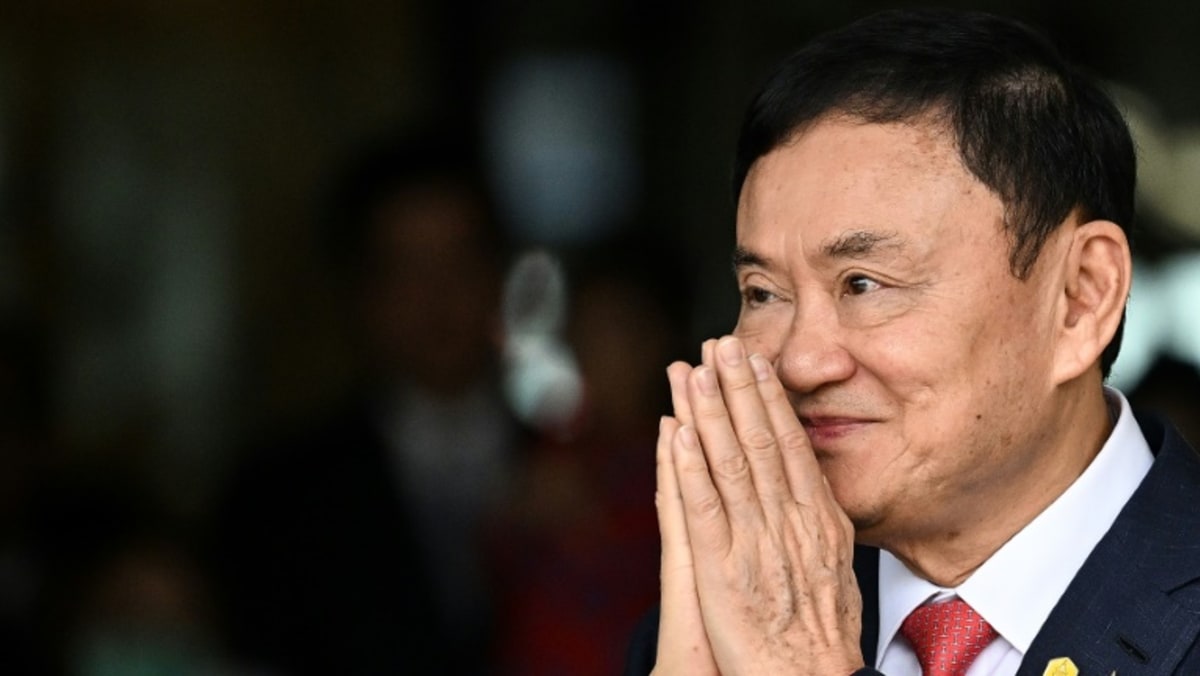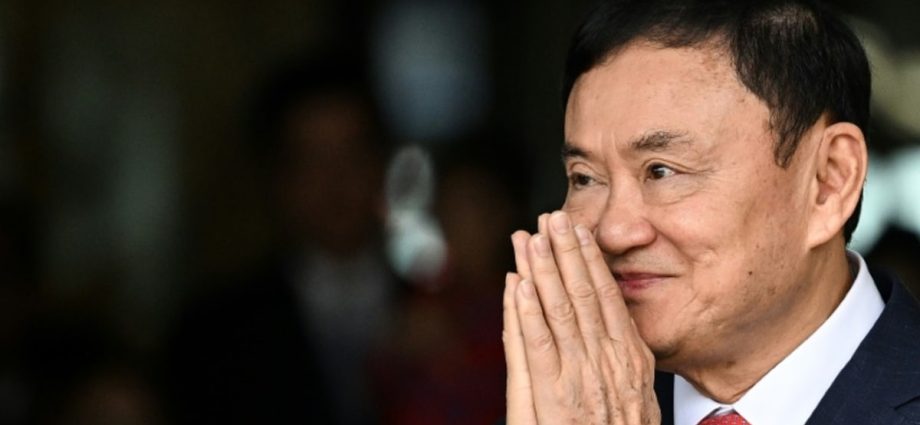
DIVISIVE FIGURE
Thaksin is one of the most influential but divisive figures in modern Thai history.
Loved by millions of rural Thais for his populist policies in the early 2000s, he is reviled by the country’s royalist and pro-military establishment, which has spent much of the past two decades trying to keep him and his allies out of power.
Hours after Thaksin landed in Bangkok to a hero’s welcome from hundreds of supporters, Pheu Thai’s Srettha Thavisin was confirmed as prime minister on Tuesday – the party’s first premier since Thaksin’s sister Yingluck was thrown out in a coup in 2014.
Just hours after being sent to jail, Thaksin was moved to a police hospital, with prison medical officers saying he needed close monitoring for various health problems, including heart trouble.
Thai media reported that Thaksin had been installed in a private VIP suite on the 14th floor of the Police General Hospital in downtown Bangkok.
A small anti-Thaksin group gathered in Bangkok Thursday afternoon to demand he serve his time.
Before last week Thaksin had not set foot in the kingdom since 2008, living mostly in Dubai to avoid criminal cases he long maintained were politically motivated.
But earlier this year he said he was willing to face justice in order to return home and see his grandchildren.
Parties linked to Thaksin dominated every Thai election since 2001 – until this year, when the progressive Move Forward Party (MFP) won the most seats.
But new PM Srettha’s coalition shuts MFP out – while bringing in parties linked to the coup-maker generals who ousted Thaksin and Yingluck.
MFP rode a wave of youth and urban discontent at nearly a decade of military-backed rule to win most seats in the May election.
But the party’s push to amend royal defamation laws and tackle business monopolies spooked the kingdom’s powerful elite, and leader Pita Limjaroenrat was blocked from becoming prime minister.

